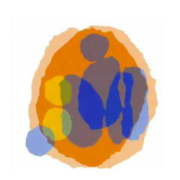“Revolutionary” baby, rite and family
Abstract
Rites marks life cycles and social rhythms. They are present in all areas of psychotherapy, especially in group psychotherapy. However, the traditional rites surrounding birth are disappearing. The hypothesis of this communication is based on the idea that the birth event provokes the rite because birth is an upheaval, a revolution, both for the newborn baby and for the family that welcomes the new member (into its fold). Starting from a series of clinical examples Read more




